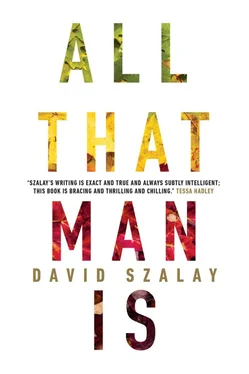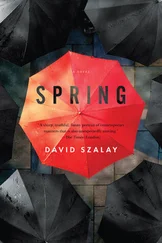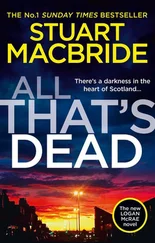Dum-dum-dum-dee
Dum-dum-dum
The asphalt glitters. It is Sunday morning. Farms lie in the flat bright land on either side of the motorway.
And he knows this motorway well. It follows the so-called Côte d’Opale, towards Ostend. To the left as he drives are the windy dunes.
Welkom in West-Vlaanderen says the sign.
And now it is like he is driving through his own past, through a landscape full of living nerves, of names that are almost painfully evocative. Koksijde, where he went once with Delphine and her mother’s dog — the small dog digging in the sand among tufts of wind-flattened grass. Nieuwpoort — where they spent that summer, he and his parents. The smell of the sea finding its way inland, up little streets — and at the ends of the streets, when you walked down them to meet the sea with your plastic spade in your hand, a milky horizon. Roeselare, where they would visit his father’s parents — the suburban house, with hop fields at the end of the neat garden. Though the memories possess a jewel-like sharpness they seem surprisingly small and far away, as if seen through the wrong end of a telescope. It has been years since he was here, on this flat tract of land next to the ship-strewn sea, and that his own life has been going on long enough now for things like that windy day at Koksijde to lie more than ten, more than fifteen years in the past is somehow a shock to him. He was already an adult then, more or less, and yet he still thinks of his adulthood as something that is just getting under way.
Feeling a little shaken, he stops for petrol.
Holding the nozzle into the tank he stares at the motorway, the thin Sunday traffic.
That desire for everything to just stay the same. That day at Koksijde, stretched out over a whole lifetime. Why is the idea of that so appealing? Or today, this very moment, the hum of the flowing petrol, its heady sickening smell. The motorway, the thin Sunday traffic. Here and now. The pallid heaven of these hours. Solitude and freedom. Stretched out over a whole lifetime. That desire for everything to just stay the same.
The tank is full.
Walking back from the till — where it felt strange, somehow, to speak his own language with the woman there — he finds himself enjoying the sight of the luxury SUV in which he is travelling. He feels pleased and proud to take his place in it, to start the engine with the touch of a button. Stańko is trusting him to hand it over, to sign the papers that will transfer the ownership. And though he does not know him very well — has only met him once, in fact — Stańko has every reason to think that he will hand it over.
Stańko is, after all, a policeman. The senior policeman of Skawina, a town in southern Poland, nowadays a suburb of Kraków — tractors farting in fields of potatoes next to a multiplex showing the latest films.
You don’t fuck with Stańko. Not in Skawina or the neighbouring townships, in Libertów or Wołowice.
It is easy to picture him in this car, moving through the banal landscape of his beat, his wallet abulge.
How that brooding ogre and his ugly little wife produced something as lovely as Waleria…
Well, maybe she wouldn’t age well. It was worth thinking about, though he feels no inclination to long-term thoughts. He still doesn’t see things that way. It still feels new, this situation, even somehow provisional. There was a sense, for some time, that they had no obligation to each other, that they were free to see other people. He didn’t. (Unless you include Erica the Latinist, who was still, last September, just about extant.) Whether Waleria did or not he doesn’t know.
He has turned inland, passed Bruges.
Later, Ghent, where he did his undergraduate degree. English and German. Sir Gawain and the Green Knight. Parzifal .
After Christmas last year he spent a few days in her parents’ dayglo orange house. A scalloped balcony over the white front door. Snow disfiguring all the garden ornaments. Waleria met him at Kraków airport, and drove him to the house, which was near a petrol station on the edge of Skawina.
Every day while he was there, they went skiing at Zakopane. (‘Do you ski?’ she had asked him, making small talk, when they first met, at Mani’s party. ‘Do I ski? I’m Belgian,’ he had deadpanned. It made her smile.) She was an excellent skier. Warily, he had followed her down the stiffest slopes Zakopane had to offer.
As he approaches Brussels, clouds close over him in the sky. Wind moves the trees at the side of the motorway. There will be rain. Shafts of hard light pick out the distant prominences of the city as he passes. He knows the way without having to think about it — the leaky underpasses, the glimpse of Uccle (those tree-lined avenues, where he was once a bookish schoolboy who lived in a big flat), and then out on the E40 towards Liège, as the rain starts to fall. He feels for the lever that sets the wipers swinging.
Since then, since Christmas, they have seen each other every few weeks. A sense evolved that they were in some way together, a sense of mutual obligation. He wouldn’t put it more strongly than that. Sometimes she visits him in Oxford, or they spend a weekend in London, or somewhere else. They meet, for the most part, in the neutral spaces of hotels. There was Florence in February. There was, at Easter, a week in the Dodecanese, island-hopping, the windy deck of the hydrofoil in its world of vivid blues.
Slowly, they are finding each other out. ‘You,’ she said, ‘are a typical only child.’
‘Which means?’
‘Selfish,’ she told him. ‘Spoilt. It never occurs to you,’ she said, ‘that you might not be the centre of the universe. Which is what gives you this personal magnetism you have…’
‘Now you’re flattering me…’
‘It’s nerdy,’ she said. ‘Still, it’s there.’
She was shuffling her cards, her tarot pack. That was a surprise. It seemed she had this New Agey side to her — it wasn’t, he told himself, fundamental to who she was.
‘Okay. You’re going to take three cards,’ she said. ‘Past, present, future.’
They were lying on his bed. Oxford. It was Saturday morning. Last month.
‘So.’ She offered him the pack, fanning it out. ‘Take one.’
Humouring her, he prised out a card.
‘Ace of Wands,’ she said. ‘Past. Take another.’
‘The Tower.’ She made a face of mock alarm. ‘Fuck. Present. Last one,’ she instructed him. And said, when he had taken it and turned it over, ‘The Emperor. Future.’
‘That sounds good,’ he suggested, looking pleased with himself.
She was studying the three cards, now lined up crookedly on the sheet. ‘Okay,’ she said, provisionally. ‘I think I understand.’
‘Tell me.’
‘It’s time to grow up. That’s the headline.’
He laughed. ‘What does that mean?’
‘Well, look at this.’ She was pointing to the Ace of Wands. She said, ‘It’s obviously, you know…it’s a phallic symbol.’
It did seem to be. The picture was of a hand holding a long wand, which thickened towards the top into a fleshy knob, a divided hemisphere.
‘Yes,’ he said. ‘So it seems.’
‘Well, that’s the past .’
‘What — so I might as well kill myself now?’
‘Don’t be silly.’ It was difficult to say how seriously she took this. She looked quite solemn. ‘The present,’ she said. ‘The Tower. Some kind of unexpected crisis. Everything turned upside down.’
‘I’m not aware of anything like that.’
‘That’s the point. You won’t be, until it hits you.’
‘Unless it’s you.’
She ignored that. ‘Now let’s look at the future. The Emperor — worldly power…’
Читать дальше












